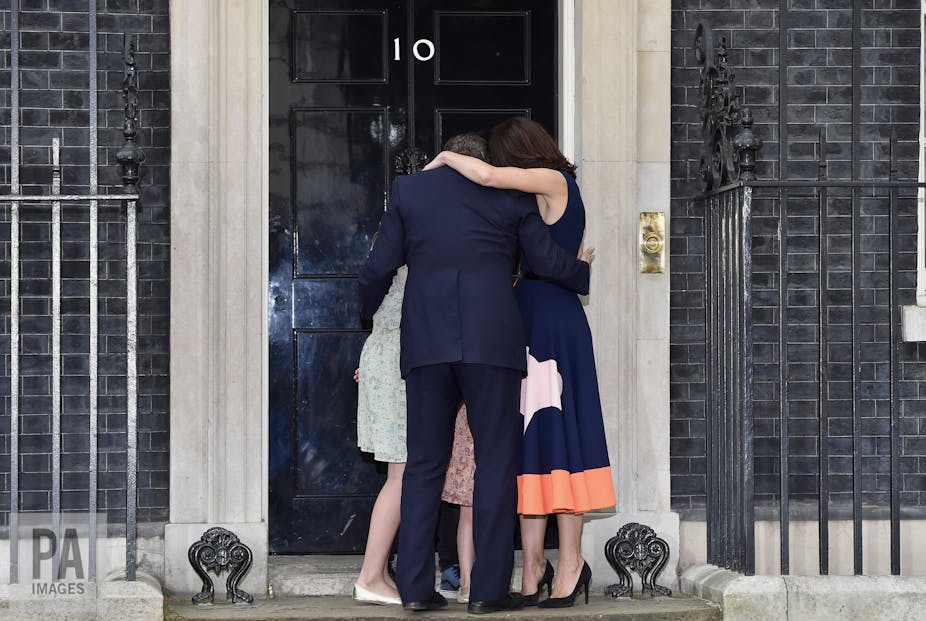David Cameron has been rated one of the worst performing post-war prime ministers in a survey of university academics specialising in British politics and contemporary British history.
Only Anthony Eden, whose career was destroyed by the Suez crisis, and Alec Douglas-Home, prime minister for only a year before he lost the 1964 general election, were ranked lower than Cameron in the league table of prime ministers who have served since 1945.
These results come from the third in a series of surveys the University of Leeds has carried out in conjunction with research company Woodnewton Associates and prior to that MORI. Similar polls, producing prime ministerial rankings, were conducted in 2004 and 2010. This is the first to include David Cameron as leader, but it excludes Theresa May. (The online poll was conducted in September 2016.)
Of course, there is no completely objective, exact and “scientific” methodology for rating prime ministers and ranking their performance. But the academics polled have spent years – in some cases decades – researching and teaching British politics, and thinking about leadership and the long-term consequences of government actions.
The league table
Respondents were asked to rate the performance of each prime minister during their tenure in Number 10 after 1945 on a scale of 0-10, with 10 representing the top score of “highly successful”.

As in previous surveys, Labour’s Clement Attlee was rated as the most successful post-war prime minister with a mean rating of 8.5. Margaret Thatcher received a score of 7.2 and Tony Blair received 6.7. Anthony Eden at 2.4 and Sir Alec Douglas-Home at 3.8 languish at the bottom of the prime ministerial league table, as in the previous surveys.
They are now joined by David Cameron on 4.0, who is rated as even less successful than Gordon Brown, on 4.6.
Among the academics who answered a subsequent question about what David Cameron’s single greatest failure was, 86% cited the EU referendum with one claiming it was the greatest defeat of any prime minister “since Lord North lost America”.
Churchill receives a rating of 5.4, placing him mid-table, as the evaluation was based on his 1950s administration only. The great war leader (1940-45) was seen by respondents as less successful as a peacetime leader (1951-55). In our 2004 survey ranking all 20th century prime ministers, however, Churchill came out second overall.
Reputations can go up as well as down. John Major’s rating, for example, has steadily improved from 3.7 in 2004 to 4.6 in 2010. In 2016, it is now 5.5, placing him in the top half of the league table. This perhaps shows how the failures/successes of later PMs and the passage of time can change perspectives. And despite the ongoing controversy of the Iraq War, Tony Blair’s position as the third highest-rated post-war premier remains solid.
When asked to rate David Cameron’s first term as prime minister – as leader of the Conservative/Liberal Democrat coalition between 2010 and 2015 – the academics gave him an average of 5.6, which would put him on a par with John Major overall and in the top half of the league table. It is Cameron’s record as the leader of the Conservative majority government that accounts for his overall poor rating.
When asked specifically to evaluate his performance as prime minister between 2015 and 2016, the academics give him a rating of 2.1. This would place him at the bottom of the league table – as a worse prime minster than Anthony Eden, long seen hitherto as the biggest post-war failure in Number 10.
Deep failings
Cameron also fared badly when respondents were asked to give their views on the impact each leader had on foreign policy, the economy, British society, democracy and their own party. Each leader was given a net score across these issues – the proportion of people rating them positively minus those who rated them negatively.

Cameron is the only one of these prime ministers to be rated negatively, on balance, across all five areas. He scored particularly badly in terms of his impact on Britain’s foreign policy and role in the world (-69) and on British democracy (-57).
For all his achievements as a successful coalition prime minister, David Cameron’s reputation and place in history seem destined to be defined by Brexit and his calling for and losing of the referendum.
Depending on how Brexit works out, future historians and political scientists may come to a different verdict on Cameron’s premiership and his place in the league table of prime ministers. But for now, academic opinion is pretty damning.

